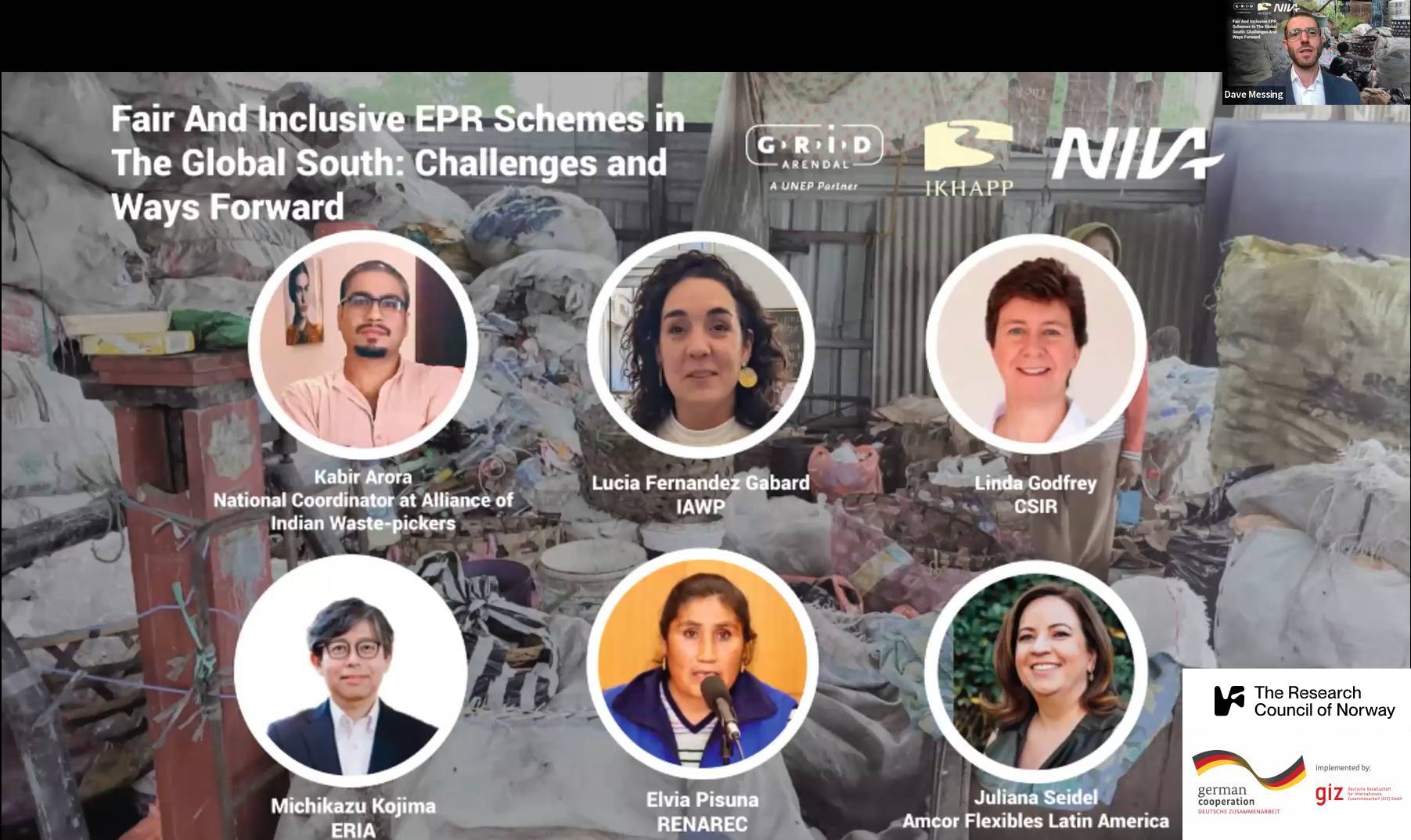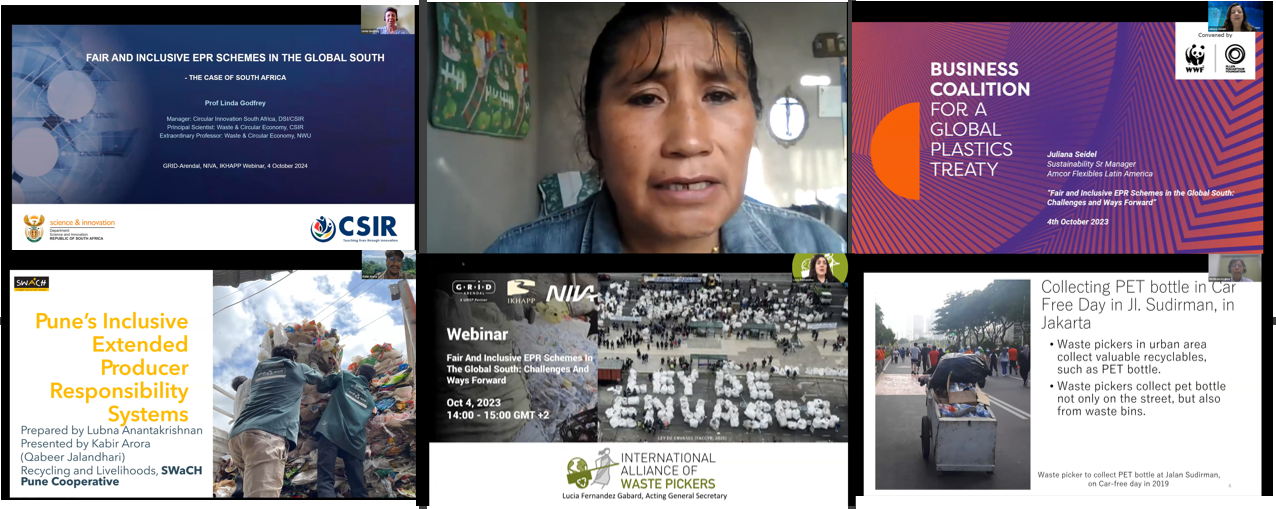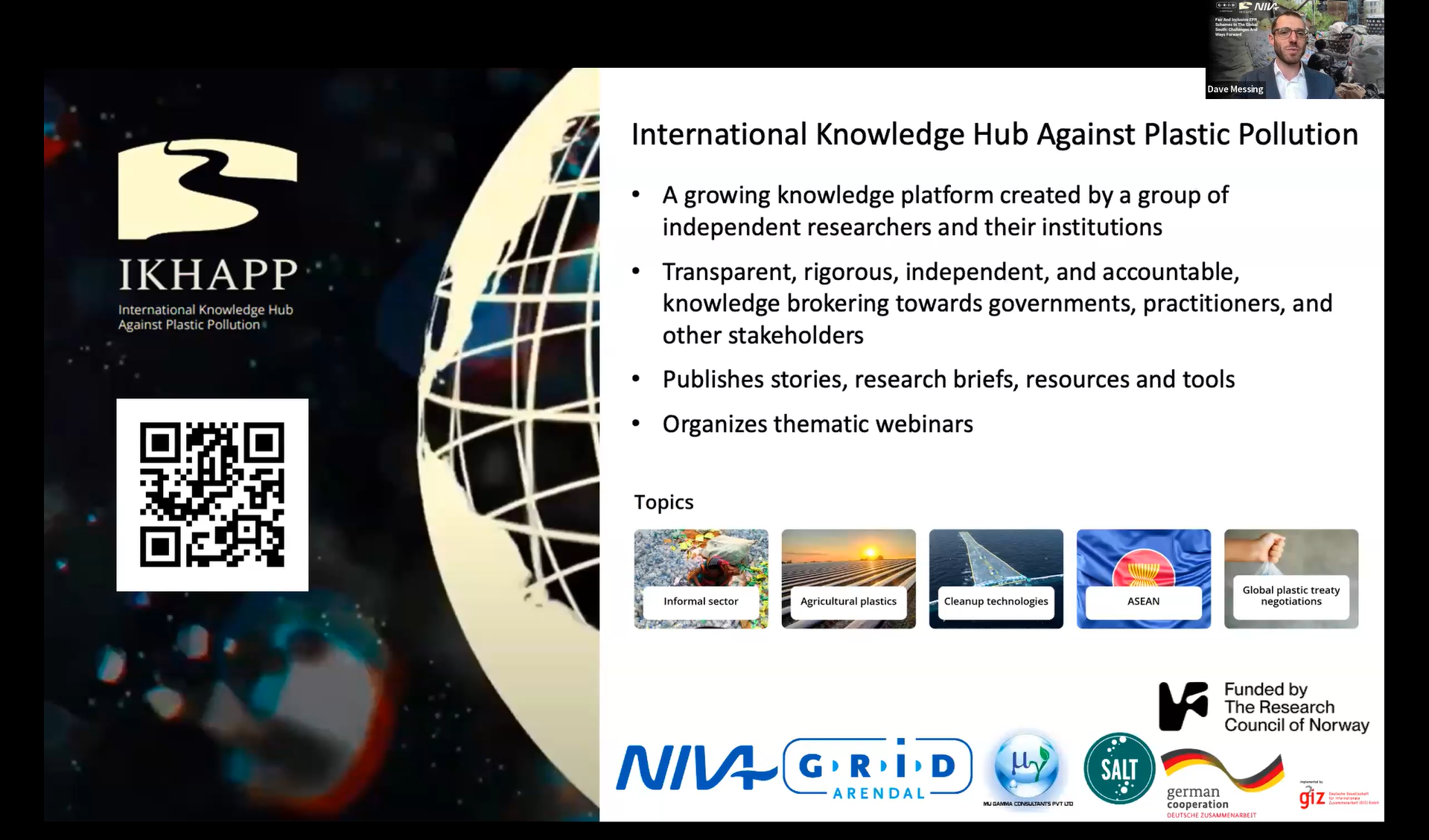Update: Webinar on Fair and inclusive EPR schemes in the Global South

Moderator Dave Messing (Expert, Waste and Marine Litter at GRID-Arendal) and featured speakers during the webinar’s introduction.
Watch the webinar recording here.
On Wednesday, 4th October 2023, GRID-Arendal and NIVA through the International Knowledge Hub Against Plastic Pollution (IKHAPP) organized a webinar entitled “Fair and Inclusive EPR Schemes in the Global South: Challenges and Ways Forward”. This webinar and all deriving knowledge products are components of ASEAN-German project 3RproMar which is funded by the German development agency GIZ, and implemented in collaboration with IKHAPP. GRID-Arendal’s role in this event has been supported through the project ASAP (Asian Scientific Alliance on Plastic Waste Value Network Management) financed by the Norwegian Research Council.
The webinar served as a pivotal platform for thought leaders, experts, and stakeholders to engage in insightful conversations surrounding Extended Producer Responsibility (EPR) schemes in the Global South. The webinar had around 152 attendees from all over the world, including 43% participants from Asia, 41% from Africa and 37% from Europe. The remainder of participants were divided between North and South America and Oceania. There were many interesting discussions and practical insights shared such as the challenges inherent in implementing fair and inclusive EPR systems and the ways in which these systems can be designed to successfully include the Informal Recycling Sector (IRS). The outcomes of this webinar will be summarized in a policy brief and published on IKHAPP.
Background:
Extended Producer Responsibility (EPR) in countries of the Global South is emerging as an opportunity to reduce plastic pollution due to their fundamental ability to enhance resource recovery. Meanwhile, the IRS sustains a continual fight for access and ownership of some of the most lucrative waste resources (Velis, 2017). With regard to the distribution of material ownership and profit, the relationship between the IRS and the EPR schemes can become challenging. It may even threaten IRS livelihoods if EPR schemes are not designed and implemented with consideration of the existing IRS structures and through participatory engagement with relevant IRS stakeholders (Talbott et al., 2022).
This digital event featured perspectives from international experts, representatives from civil society, business sector and the IRS and showcased practical examples of EPR schemes in Asia and Africa that are inclusive to the IRS. The event aimed to contribute to an improved understanding of the potential challenges, enabling factors, and benefits of designing inclusive and just EPR systems. Another key objective was to contextualize these debates within the ongoing negotiations towards a global plastics treaty, in which provisions requiring Parties to establish and operate EPR are being considered.
The text above is excerpted from the registration page of the webinar.
Speakers:

From the top-left:
Linda Godfrey
Principal Scientist at the CSIR / Extraordinary Professor at North-West University, South Africa
Elvia Pisuna
President of Renarec, National Association of Recyclers in Ecuador
Juliana Seidel
Sustainability Sr. Manager, Amcor Flexibles Latin America
Kabir Arora
National Coordinator at Alliance of Indian Waste-pickers, India
Lucia Fernandez Gabard
Acting General Secretary for the International Wastepickers Alliance (IAWP)
Michikazu Kojima
Senior Advisor on Environmental issues at Economic Research Institute for ASEAN and East Asia (ERIA)

Introduction of IKHAPP in the webinar.
References:
Cass Talbott, T., Chandran, P., Allen, C., Narayan, L., & Boampong, O. (2022). Extended Producer Responsibility (EPR) and Waste Pickers. WIEGO Technical Brief No. 15. Manchester, UK: WIEGO.
Velis, C. A. (2017). Waste pickers in Global South: Informal recycling sector in a circular economy era. Waste Management & Research, 35(4), 329–331. https://doi.org/10.1177/0734242×17702024